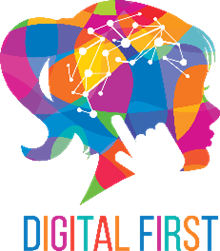
Izobražujemo najboljši pedagoški kader
Pridružite se študijskim programov, ki jih kot edina fakulteta v Sloveniji izvajamo za vse ravni šolskega sistema.
17. 4. 2025

Pedagoška fakulteta Univerze v Ljubljani od leta 2024 so-izvaja Erasmus+ projekt Digital tech as the first language: informatics for digital natives (DIGITAL FIRST), ki ga vodi Algebra univerza, Hrvaška. Cilj projekta je oblikovanje novega, inovativnega pedagoškega pristopa v poučevanju informatike.
V sklopu projekta smo s partnerji nedavno opravlili spletno raziskavo, ki je vključevala kar 1,017 učiteljev ter izvedli fokusne skupine, ki so vključevale 42 učiteljev in 105 študentov. Ob objavi rezultatov smo s projektnimi partnerji pripravili sporočilo za javnost, ki ga lahko preberet v nadaljevanju.
As digital technologies continue to influence every aspect of life, equipping young people with the skills and understanding to navigate this world is more crucial than ever. The DIGITAL FIRST project is dedicated to aligning informatics education with the realities of the digital age, focusing on children who are digital natives coming to school already with a certain level of digital skills.
The project has conducted a major transnational study across 10 EU countries to explore the current state of informatics education in primary and secondary schools and to identify how it should evolve to meet the needs of today’s children.
The study combined qualitative and quantitative research, including an online survey with 1,017 teachers, focus groups with 42 teachers and 105 students. The research aimed to answer three key questions:
What do we learn/teach? How do we learn/teach it? Are we happy about it?
The research highlights both commonalities and differences in the way European countries approach informatics education. Core topics such as Programming, Data and Information, and Privacy and Security are widely addressed, whereas areas such as Human–Computer Interaction, Responsibility and Empowerment, and Modelling and Simulation are covered less consistently. In the survey, the areas related to Privacy, Safety and Security and Data and Information received the least attention from the teachers, despite their growing importance in today’s digital society.
Focus group discussions revealed that various participants of the study recognise the importance of digital literacy and both teachers, parents, NGOs, business representatives and students emphasise innovation: they would like to master new technologies, like AI. E-ethics and security issues are very important for all these target groups.
In terms of methodology, most teachers still rely on teacher-centred approaches, especially in secondary education. Demonstration, repetition, and instruction dominate, while experiential and interaction-based learning methods, which promote student engagement and deeper understanding, are used far less frequently. Gamification is more common in primary schools, but still not widespread.
These traditional methods may support technical learning but risk limiting the development of students’ critical thinking, problem-solving, and independent learning skills, which are essential in a fast-evolving digital world.
The online survey revealed that informatics teachers are mostly satisfied with the way informatics is taught at the school level. However, their perceptions are less positive when it comes to informatics education at the national level. A SWOT analysis highlighted several areas in need of improvement, including curriculum overload, insufficient political support, a shortage of qualified teachers, and limited infrastructure. Moreover, in some countries, informatics is still not a compulsory subject.
The DIGITAL FIRST study underscores the urgent need for informatics education to be forward-looking, practical, and inclusive. Beyond preparing students for future careers, it must equip them with the skills to understand and engage with emerging technologies and global digital trends. This includes fostering critical thinking, autonomy, and digital responsibility through interdisciplinary and hands-on approaches. Crucially, the study highlights the importance of promoting diversity and inclusion in informatics education, ensuring all learners, regardless of background, have equal opportunities to thrive in the digital society. By addressing these priorities, informatics education can better prepare students for future careers and contribute to a more inclusive and competitive digital society.
About DIGITAL FIRST:
The project consortium consists of 15 partners from 10 European countries (Bulgaria, Croatia, Cyprus, Finland, Greece, Italy, Lithuania, Portugal, Slovenia, and Spain) dedicated to transforming informatics education in primary and secondary schools across Europe.
The project started on 1 December 2023 and will end on 30 November 2026.
Read our web article to learn more on research results
| LEGAL NOTICE
Funded by the European Union. Views and opinions expressed are however those of the author(s) only and do not necessarily reflect those of the European Union or the European Education and Culture Executive Agency (EACEA). Neither the European Union nor EACEA can be held responsible for them. |
| © Digital First Consortium, 2025
Reproduction is authorized provided the source is acknowledged. |

Pridružite se študijskim programov, ki jih kot edina fakulteta v Sloveniji izvajamo za vse ravni šolskega sistema.